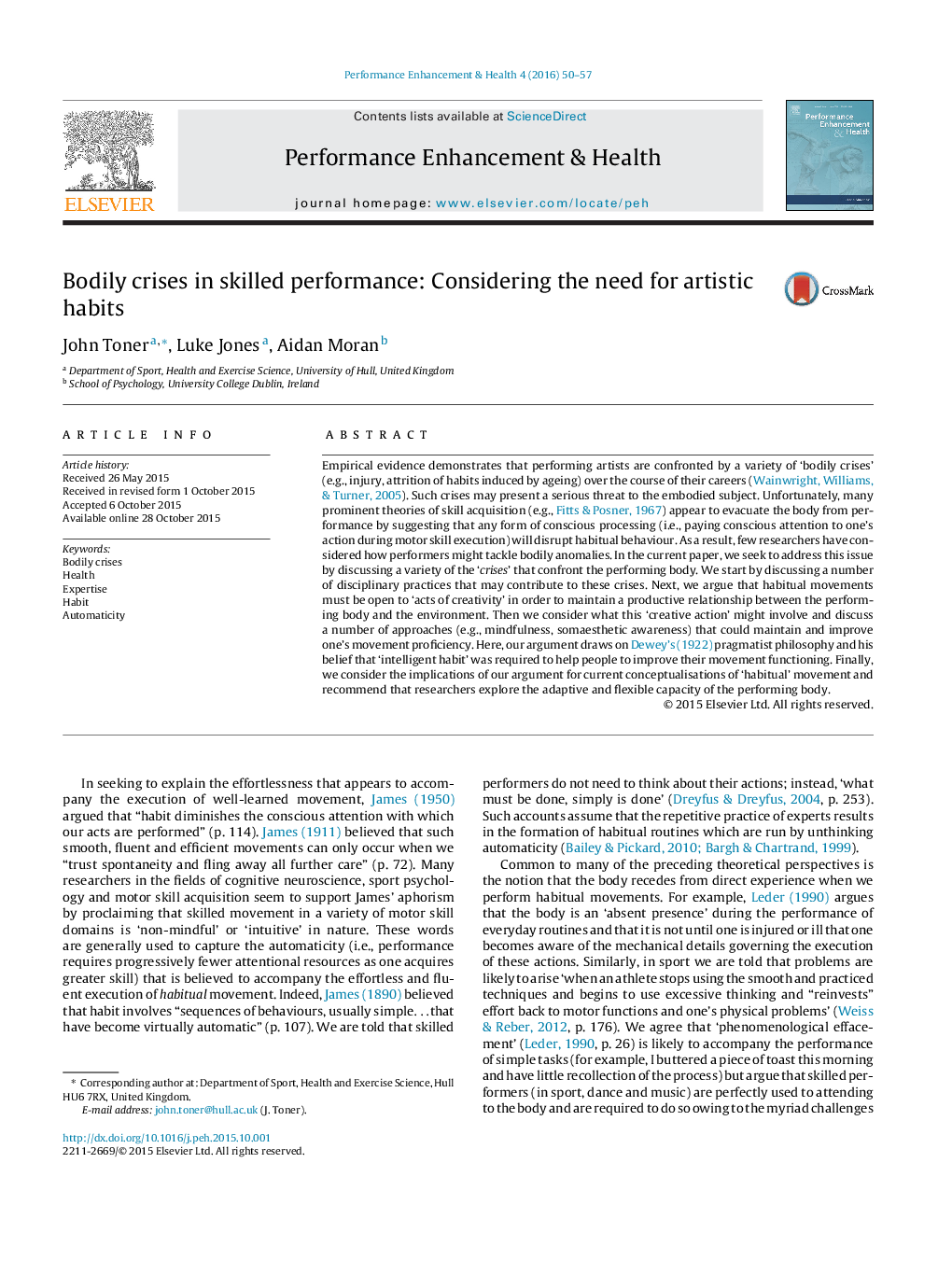| کد مقاله | کد نشریه | سال انتشار | مقاله انگلیسی | نسخه تمام متن |
|---|---|---|---|---|
| 889553 | 1471978 | 2016 | 8 صفحه PDF | دانلود رایگان |
• We consider the ‘crises’ that confront the performing body.
• We discuss how ‘creative action’ might address these crises.
• We consider the implications of our argument for current conceptualisations of habitual movement.
Empirical evidence demonstrates that performing artists are confronted by a variety of ‘bodily crises’ (e.g., injury, attrition of habits induced by ageing) over the course of their careers (Wainwright, Williams, & Turner, 2005). Such crises may present a serious threat to the embodied subject. Unfortunately, many prominent theories of skill acquisition (e.g., Fitts & Posner, 1967) appear to evacuate the body from performance by suggesting that any form of conscious processing (i.e., paying conscious attention to one's action during motor skill execution) will disrupt habitual behaviour. As a result, few researchers have considered how performers might tackle bodily anomalies. In the current paper, we seek to address this issue by discussing a variety of the ‘crises’ that confront the performing body. We start by discussing a number of disciplinary practices that may contribute to these crises. Next, we argue that habitual movements must be open to ‘acts of creativity’ in order to maintain a productive relationship between the performing body and the environment. Then we consider what this ‘creative action’ might involve and discuss a number of approaches (e.g., mindfulness, somaesthetic awareness) that could maintain and improve one's movement proficiency. Here, our argument draws on Dewey's (1922) pragmatist philosophy and his belief that ‘intelligent habit’ was required to help people to improve their movement functioning. Finally, we consider the implications of our argument for current conceptualisations of ‘habitual’ movement and recommend that researchers explore the adaptive and flexible capacity of the performing body.
Journal: Performance Enhancement & Health - Volume 4, Issues 1–2, March 2016, Pages 50–57
